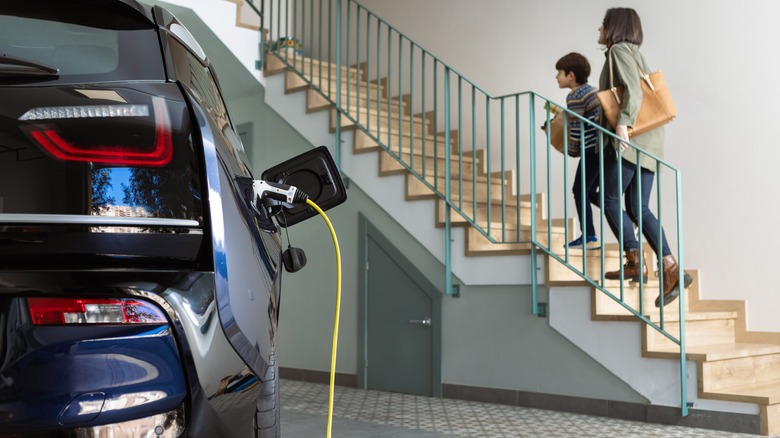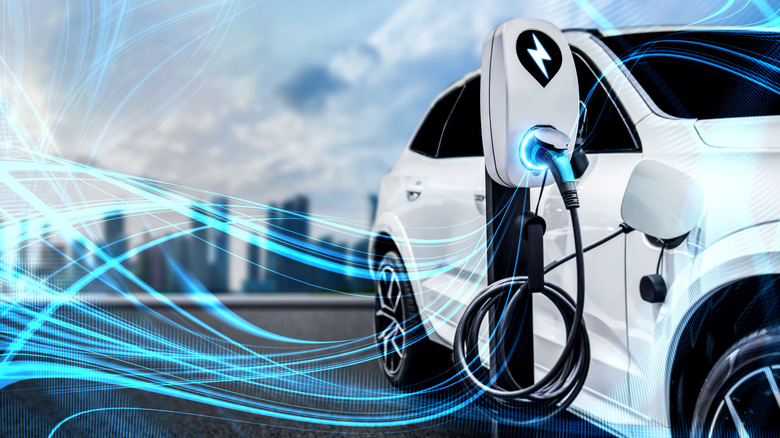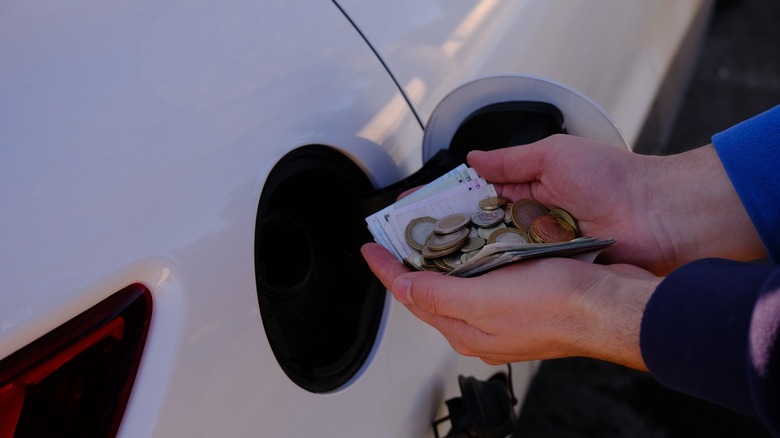The Reason You Shouldnt Buy An Electric Car Unless You Own A Home
Electric cars are remaking roadways all across the world. Chinese consumers have been using electric vehicles to navigate the streets of busy cities and rural towns alike for many years. McKinsey reports that Chinese manufacturers dominated the national market with an 85% share of all sales in 2019, and Mordor Intelligence estimated the Chinese EV market to be worth $124.2 billion in 2021 (with an estimated rise to $799 billion by 2027).
In contrast, Fortune Business Insights reports the U.S. EV market at $24.03 billion in 2020, with a compound annual growth rate of 25.4% (compared to China's slightly higher 30.1%), setting a target of $137.43 billion by 2028.
These numbers might be seemingly irrelevant to your decision to buy or pass on an electric car, but as an apartment owner or renter of any sort, they should be central to your selection.
The EV marketplace is made up of more than just the volume of cars on the road. EV infrastructure in the United States naturally lags behind that of other nations that have more enthusiastically adopted the changeover to electric-only vehicle power. Specifically, the inability of a renter to install EV charging equipment in their home can pose a major hurdle that must be overcome with public charging capabilities.
Infrastructure should be the key motivator for a buyer looking to make the shift from gasoline to electric out of necessity. It's for this reason that homeownership makes for successful EV ownership.
Infrastructure proliferation isn't uniform across the United States
As with any new technology, charging stations and other essential equipment involved in the purchase and use of electric vehicles won't appear as a uniform blanket of adoption across the entire expanse of any space.
In the United States, California dominates the electric vehicle marketplace, with 38.7% of all new EV registrations in the country for 2021 at an aggregate number of 563,070. The next two states are Florida and Texas at 6.6% and 5.6%, respectively. Half of all states reported less than 10,000 EV registrations for the year (via Electrek).
All this adds up to a stark fact that can't be ignored: Homeowners are able to install EV charging stations at home, but consumers ahead of the curve are going to experience severe limitations when it comes to public charging.
Electric vehicles are an essential transition for drivers. Hedges & Company reports that there are 238.2 million licensed drivers in the United States. A smart solution to the emissions volume that traditional, gas-powered cars create is needed for a more secure future. But goodwill and hopes for a greener tomorrow won't change the fact that barren charging options in some local communities make the use of electric alternatives unviable without the capacity to charge in the home.
Charging costs aren't created equal
In the same way that EV charging deserts create an adoption problem for those who don't own their own home, pricing at stations that do exist can be astronomically higher than the cost to "fill up" at home. Investopedia reports that might typically cost between $10 and $30 to provide a relatively full charge to your car with a level 3 (fast) charger. In contrast, the Department of Energy estimates that a full charge (on a 200-mile-range vehicle) can be obtained for around $6 with home charging equipment.
Reliance on public chargers and other charging infrastructure means there may be a wait involved in your commute or a station that once catered to your needs shuts down, in the same way that a gas station might close. The difference, of course, lies in the prevalence of other options for internal combustion engine (ICE) drivers versus a handful of EV-friendly refill locations.
These constraints lead to a complex supply and demand balance of EV charging capabilities, requirements, and costs.


